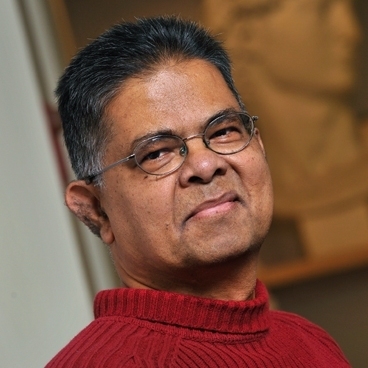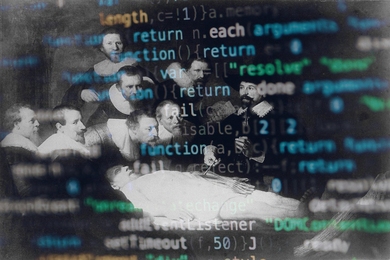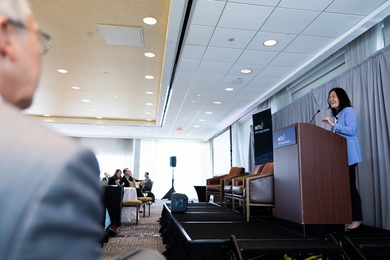Dr. Omar Khalidi, the longtime MIT research librarian who died on Monday, Nov. 29, at the age of 57, was a respected scholar who was committed to the cause of social justice for minority Muslims in India and around the world, friends and colleagues said.
Born in Hyderabad, India, and educated in India, Britain and the United States, Khalidi was a scholar of Islamic architecture, history and culture, and worked as librarian in support of the Aga Khan Program for Islamic Architecture for more than 20 years.
Known for his kindness and patience as well as his passion for travel, politics, religion and culture, Khalidi was well respected by those in the MIT community.
“He was a great reference librarian especially in his fields. He spent a lot of time with students and researchers, and was always patient and willing to take the time to help people,” said his MIT Libraries colleague, Kate Gyllensvard.
Khalidi’s death represents a great loss for the MIT community, said Chaplain to the Institute Robert Randolph. On Friday, Dec. 3, Randolph led a memorial service for Khalidi that drew more than 100 people.
“Omar was a born teacher who was gifted with the ability to help folk view the world with enhanced vision,” Randolph said. “His death is a great loss because he helped us see what we did not understand we were missing.”
Khalidi’s daughter, Aliya, was among those who spoke at the memorial. “Being a part of the MIT community meant so much to my father,” she said. “For 27 years, starting even before I was born, he devoted his life to academia and this intellectual community.”
Khalidi was known in the global Indian Muslim community as an activist committed to the cause of social justice for minority Muslims in India and around the world. He authored several books and articles on the topic, including Khaki and Ethnic Violence in India: Armed Forces, Police and Paramilitary During Communal Riots and Muslims in Indian Economy. He was also active in the Islamic Center of Boston, located near his home in Wayland, Mass., and once served as regional vice president of the American Federation of Muslims of Indian origin.
“India has become a little poorer with the passing of Dr. Omar Khalidi, a great scholar and the man who articulated the voice of the Indian Muslims during some of their darkest hours,” Arab News reported.
Khalidi is also survived by his wife, Nigar.
Born in Hyderabad, India, and educated in India, Britain and the United States, Khalidi was a scholar of Islamic architecture, history and culture, and worked as librarian in support of the Aga Khan Program for Islamic Architecture for more than 20 years.
Known for his kindness and patience as well as his passion for travel, politics, religion and culture, Khalidi was well respected by those in the MIT community.
“He was a great reference librarian especially in his fields. He spent a lot of time with students and researchers, and was always patient and willing to take the time to help people,” said his MIT Libraries colleague, Kate Gyllensvard.
Khalidi’s death represents a great loss for the MIT community, said Chaplain to the Institute Robert Randolph. On Friday, Dec. 3, Randolph led a memorial service for Khalidi that drew more than 100 people.
“Omar was a born teacher who was gifted with the ability to help folk view the world with enhanced vision,” Randolph said. “His death is a great loss because he helped us see what we did not understand we were missing.”
Khalidi’s daughter, Aliya, was among those who spoke at the memorial. “Being a part of the MIT community meant so much to my father,” she said. “For 27 years, starting even before I was born, he devoted his life to academia and this intellectual community.”
Khalidi was known in the global Indian Muslim community as an activist committed to the cause of social justice for minority Muslims in India and around the world. He authored several books and articles on the topic, including Khaki and Ethnic Violence in India: Armed Forces, Police and Paramilitary During Communal Riots and Muslims in Indian Economy. He was also active in the Islamic Center of Boston, located near his home in Wayland, Mass., and once served as regional vice president of the American Federation of Muslims of Indian origin.
“India has become a little poorer with the passing of Dr. Omar Khalidi, a great scholar and the man who articulated the voice of the Indian Muslims during some of their darkest hours,” Arab News reported.
Khalidi is also survived by his wife, Nigar.






